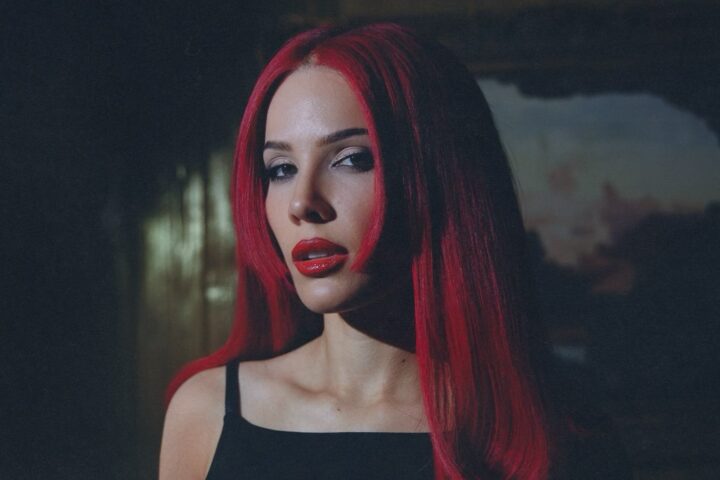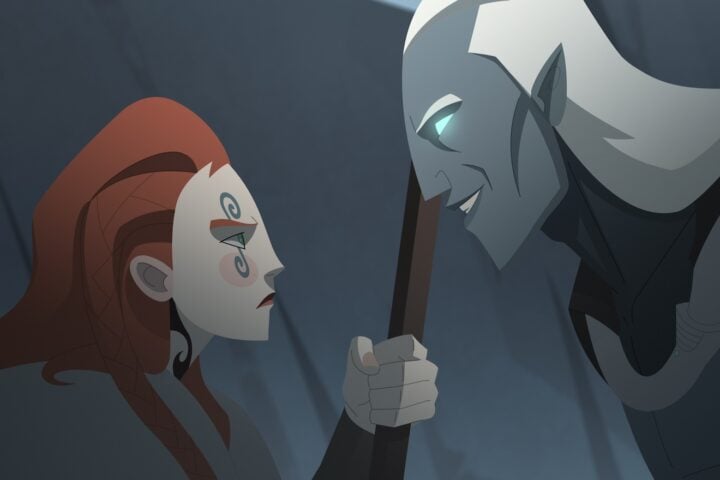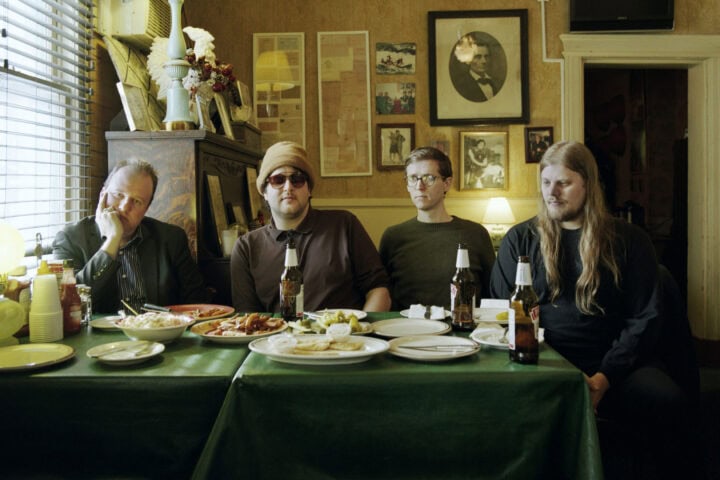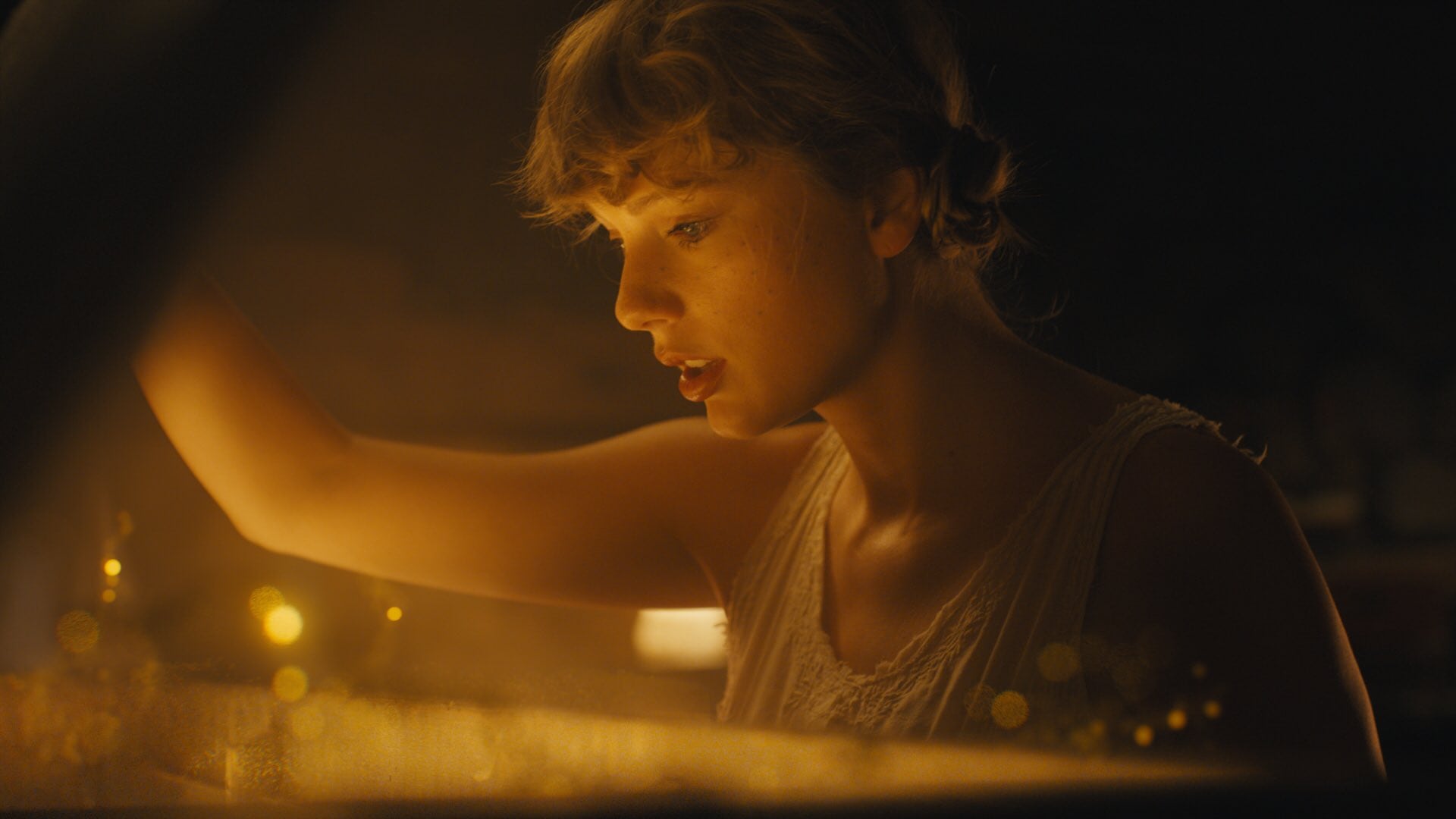Ellie Goulding’s Brightest Blue begins with the aptly titled “Start,” a tasteful, piano-driven rumination about the impossibility of new beginnings and the difficulty of overcoming past regrets. The track showcases the British singer-songwriter’s knack for letting songs build and generate suspense, and her skill for creating tension with delayed yet catchy hooks. As the album wears on, though, it’s clear that this opening salvo is a fluke, as the rest of the soporific set tries in vain to refine Goulding’s sound, slowing tempos and removing sonic affectations to reveal a core of amorous, unmemorable pop anthems.
On past albums, Goulding used bombastic production and copious vocal processing to distract from her limited range as a singer. If not for her whimsical phrasing and over-articulation of words, her paper-thin vocals would feel virtually anonymous. She largely downplays the grandiosity on Brightest Blue, instead opting for more stripped-down ballads like “Flux” and “Woman,” wherein she struggles to bring the melodies she’s written to life. These tracks give the impression of an industry songwriter laying down a guide vocal for a more skilled vocalist—a notion furthered by the head-scratching decision to both interpolate Dua Lipa’s “Be the One” and name check Madonna’s “Material Girl” in the same breath on “Power.”
Several songs on Brightest Blue utilize backup choirs, a trick Goulding has employed to maximum effect on past hits such as “Love Me Like You Do,” in an attempt to raise the album’s insistently midtempo pulse. Though fewer and farther between than in the past, strange computerizations mangle the singer’s voice on “How Deep Is Too Deep” and “Brightest Blue,” the hooks of which are either partially or fully sung via Vocoder. That these tracks’ ostensible emotional pinnacles find Goulding harmonizing with a robot counterpart—her voice manipulated beyond recognition—dehumanizes her, eliciting a discomfiting irony that plays as unintentional. It might be fun if Goulding weren’t so straight-faced about it all.
Goulding has tended toward painting co-dependence and submissiveness as causes for celebration. After all, she once opined, “Why don’t you be the artist and make me out of clay/Why don’t you be the writer and decide the words I say?” with little-to-no self-awareness on 2010’s “The Writer.” Here, she gestures toward self-love on “New Heights”—“Love without someone else feels right/Love for myself in this new light,” she sings—and the not-so-subtly titled interlude “Ode to Myself.” Yet, these attempts at thematic course correction feel bland and repetitive, and the red-flag relationship dynamics persist, such as her desire to conform herself to her lover’s identity on “Tides,” blithely relinquishing her own agency.
At times, it seems as if Goulding is pushing back against controlling and abusive partners, but that would require a more self-possessed and attitude-laden POV, which is entirely absent here except, perhaps, on the single “Hate Me.” For the most part, she doesn’t have the chops or soul of contemporaries like Florence Welch, who sings of similar subject matter with a real torch, and who shares a collaborator in Joseph Kearns, who produced almost every song on Brightest Blue. At Kearns’s behest, the album takes a relatively new tack for Goulding, trading the garish for the palatable, but it’s no less grating as a result.
Since 2001, we've brought you uncompromising, candid takes on the world of film, music, television, video games, theater, and more. Independently owned and operated publications like Slant have been hit hard in recent years, but we’re committed to keeping our content free and accessible—meaning no paywalls or fees.
If you like what we do, please consider subscribing to our Patreon or making a donation.






